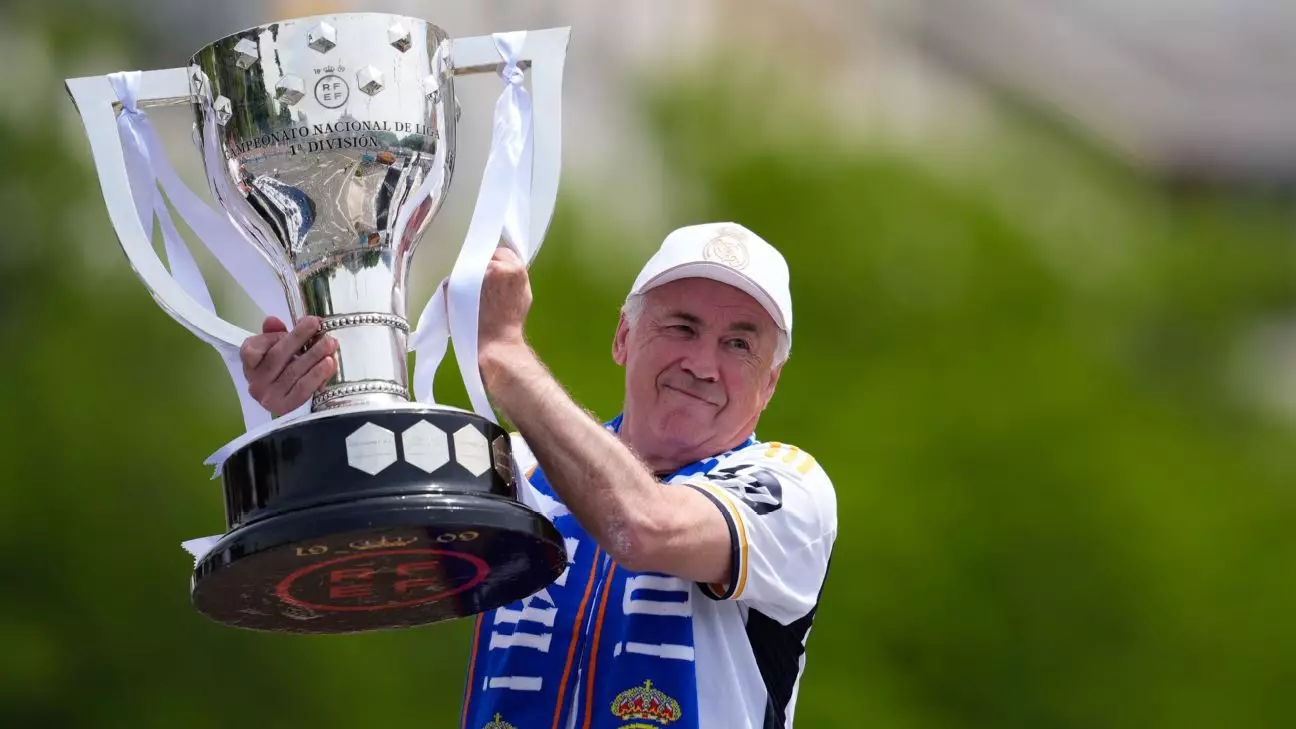Carlo Ancelotti has etched his name into the annals of Real Madrid’s history, becoming the club’s most decorated coach following a 3-0 victory against Pachuca in the FIFA Intercontinental Cup final. This triumph marked Ancelotti’s 15th trophy with the club, a remarkable achievement that solidifies his status in the hierarchy of football management. His tenure at Madrid has come in two significant periods: first from 2013 to 2015 and more recently from 2021 onwards. Ancelotti’s artistry in coaching has been evident through the various titles he has secured, including three UEFA Champions League trophies and two La Liga titles, among others.
The previous record of trophies achieved at Real Madrid was held by the revered Miguel Muñoz, a coach who also left an indelible mark during his 14-year service, winning two European Cups and nine league titles. Ancelotti’s achievement not only surpasses this legacy but also highlights a shift in the dynamics of achieving success in modern football. The evolution of tactics, player management, and an increased competitive landscape adds layers to Ancelotti’s accomplishment that go beyond mere numbers. The significance of this milestone lies not just in quantity but also in the consistent quality of the teams he has crafted and led.
Ancelotti’s statement following the victory against Pachuca revealed his strategic mindset. “We took control little by little, and ended the game well,” he remarked, conveying an understanding that success is a product of both technical prowess and psychological readiness. His acknowledgment of the “right attitude” demonstrates a holistic approach to coaching, where mental fortitude is just as critical as physical skills. The game against Pachuca was a tactical exhibition, wherein Ancelotti’s direction allowed talents like Kylian Mbappé and Rodrygo to shine, displaying a keen awareness of how to harness individual strengths for collective success.
The accolades from players corroborate Ancelotti’s influence on and off the pitch. Stars like Vinícius Júnior and Fede Valverde expressed gratitude towards their coach, praising his ability to provide freedom while instilling a strong sense of unity and direction within the team. These sentiments illustrate how Ancelotti has cultivated a positive team culture, essential for achieving high-level performance in a sport that can often be marred by individual egos and rivalries. Indeed, the trust and respect his players have for Ancelotti is a key ingredient in crafting a coherent and formidable squad.
With his legacy continually expanding, Ancelotti faces the promising prospect of adding further silverware to his collection in the near future. Madrid is set to participate in the Spanish Supercup in January, where they will take on Mallorca in the semifinals. Should they advance, a classic clash against Barcelona or Athletic Club could materialize, presenting Ancelotti an opportunity to once again demonstrate his strategic acumen and reaffirm his standing as one of football’s preeminent tacticians.
Having first arrived at Real Madrid in June 2013, Ancelotti’s career has been marked by not only his trophy haul but also the records he has set across European football. As the only manager to claim league titles in all of Europe’s ‘big five’ leagues, and the sole coach to lift the Champions League five times, Ancelotti’s achievements resonate deeply within the sport. His journey encapsulates the evolution of football, blending traditional tactics with a contemporary understanding of player dynamics and the intricate balance of team cohesion.
Carlo Ancelotti’s tenure with Real Madrid not only stands as a testament to his exceptional coaching abilities but also reflects the broader narrative of success within the sport. As fans and players alike celebrate this historic achievement, Ancelotti’s influence will continue to inspire future generations, etching an enduring legacy for both himself and the club.

